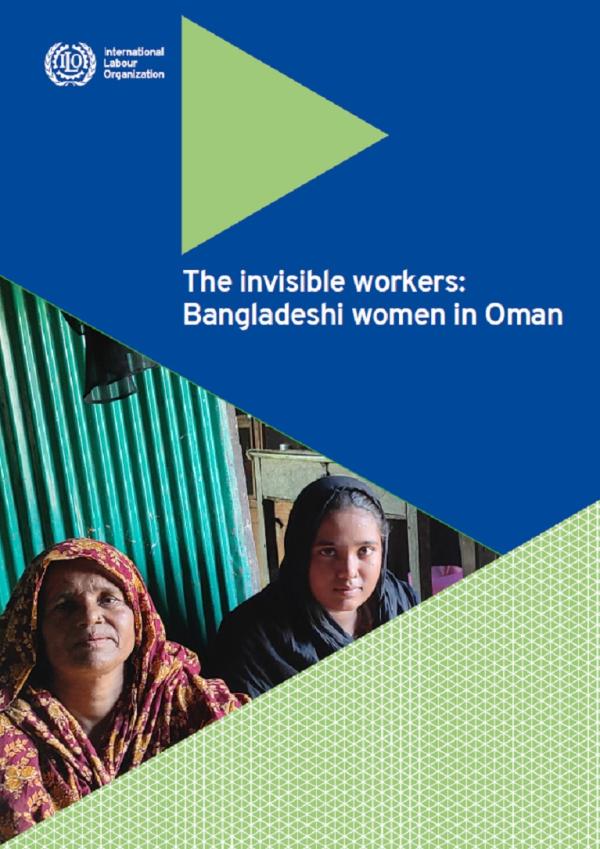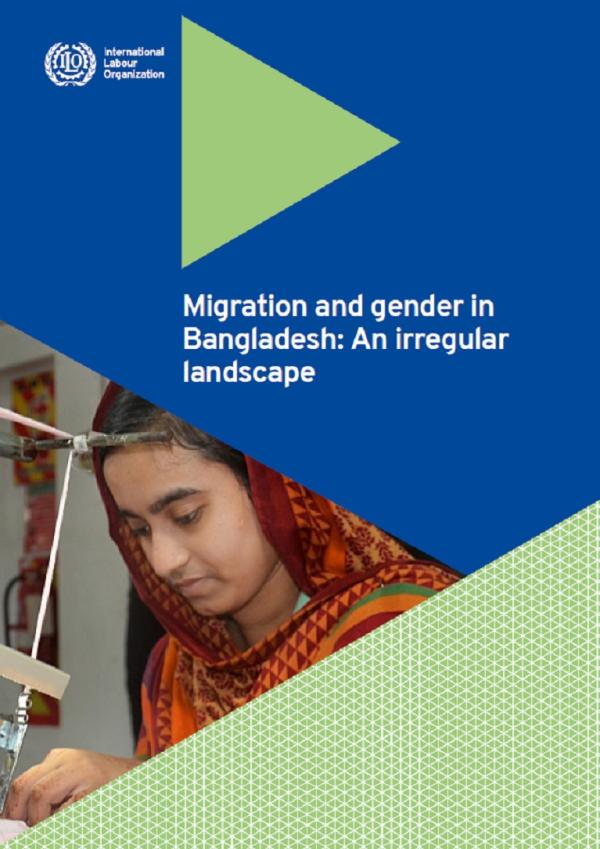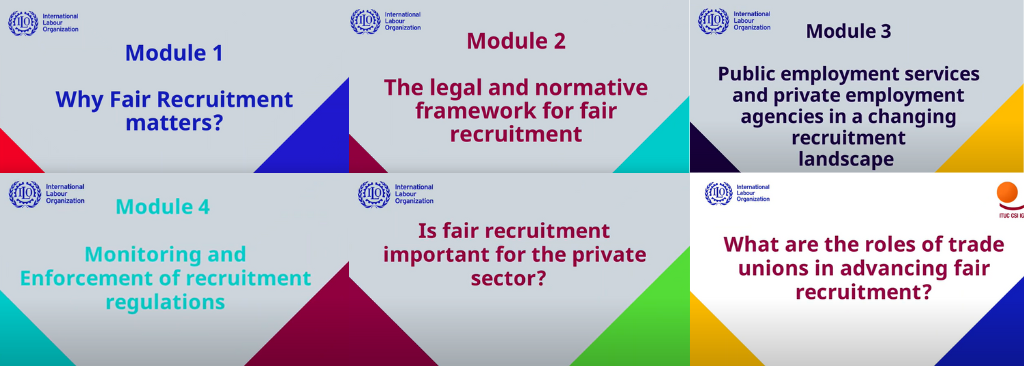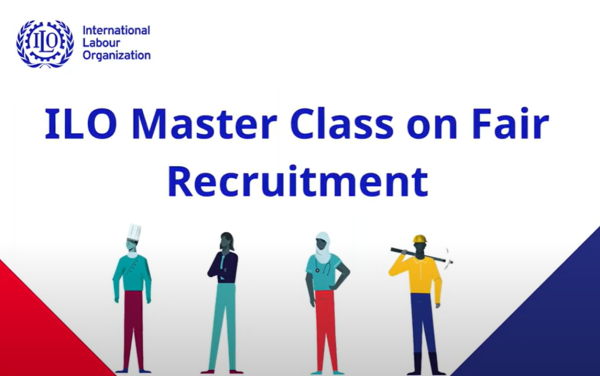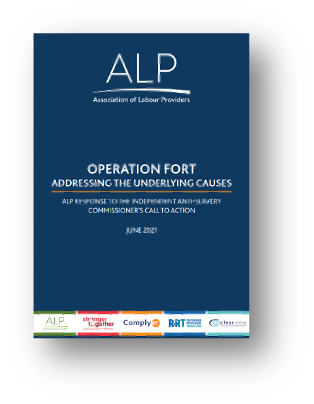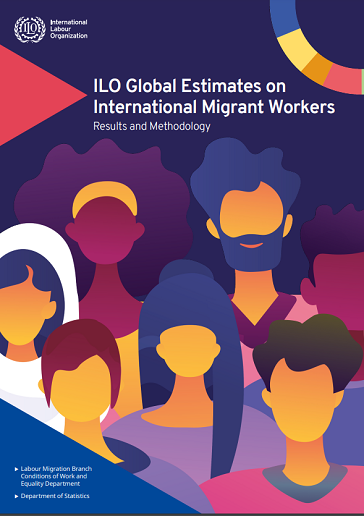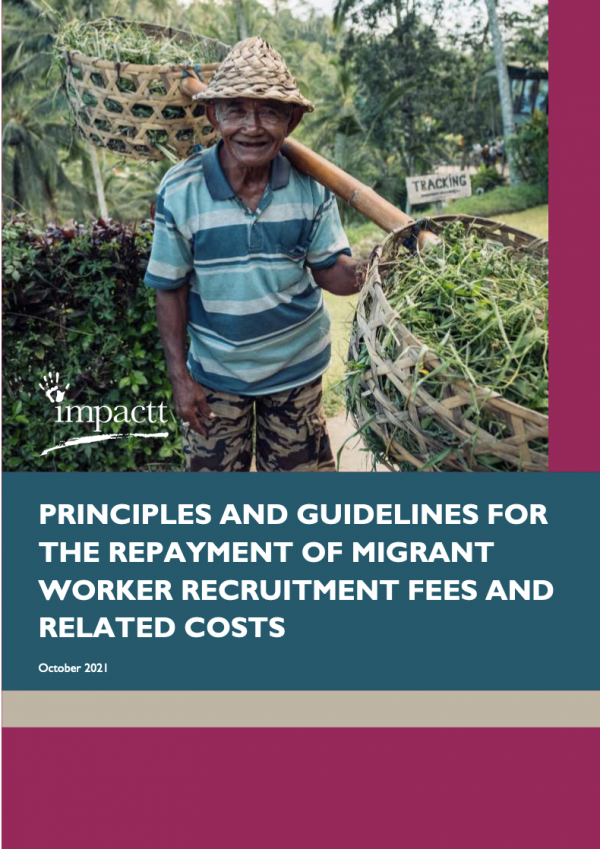The invisible workers: Bangladeshi women in Oman
The purpose of this ethnography is to follow the lives of working women from Bangladesh and document and analyse the diversity of their individual and collective experiences. The findings reveal a reality that contrasts from the usual characterisations of migrant women.
This study explores the work and lives of women from Bangladesh in Oman. It is meant to be an exploratory study about the working and living conditions of women domestic workers from Bangladesh. The study lays out the context of women’s migration from Bangladesh to Oman, it’s relationship with the migration of men, the types of work and living arrangements that were encountered, the social networks of migrant women and other considerations that Bangladeshi women reflected on. This ethnographic study fills a gap on research regarding migrant workers from Bangladesh in Oman.
Type of document :
Country/Region : , , , ,
Year of publication :
Theme : , , ,
Migration and gender in Bangladesh: An irregular landscape
This survey is part of a series of studies commissioned by the Work in Freedom Programme of the ILO in order to document the motives and trajectories of migrant women workers. The survey explores the local and regional gendered specificities of migration and work-seeking in selected localities of Bangladesh by collecting gender disaggregated data and analysing contrasting patterns that inform women and men’s migration.
This report presents the result of a survey conducted in five districts of Bangladesh to document international labour migration. The districts were selected for their contrasting features. Two districts, Barguna and Patuakhali, are relatively new to women’s migration, whereas three districts, Manikganj, Narayanganj and Brahmanbaria, have a long history of such movement. The extent of women’s participation in migration was a major criteria for the selection of districts aimed to capture a range of situations. In all, 8,437 migrant workers were recorded in 125 villages. The analysis brings out important consideration that challenge common assumptions on women’s migration. For example, the survey brings out hard evidence that questions policy assumptions that women migrate homogenously from around the country or that their cost of recruitment is high. In that sense, this survey’s findings have important implications on local, national and regional policy making related to safe migration, anti-trafficking and labour policies.
Type of document :
Country/Region : , , ,
Year of publication :
Theme : , , ,
Master class on fair recruitment
Within the context of exacerbated challenges created by COVID 19 pandemic, the ILO’s General Principles and Operational Guidelines for Fair Recruitment and Definition of Recruitment Fees and Related Costs (GP&OG) provides invaluable guidance on how to ensure the recruitment process of workers, especially migrant workers. The GP&OG are organized in a way that respects the rights of those involved, the needs of communities of origin and destination, and takes into account the legitimate needs of employers and recruiters.
Based on the ILO Fair Recruitment Initiative Strategy, the ILO and ITC-ILO have developed a series of Master class on fair recruitment, to explain what can be done to reduce the risk of abusive and fraudulent recruitment of workers. The Masterclass on fair recruitment is divided into six modules:
Type of document :
Country/Region :
Year of publication :
Theme :
Due Diligence to Ensure Labour Provider Good Practice
Support for UK labour providers, and their clients, to undertake comprehensive and effective due diligence to safeguard your business and those who work within it.
Type of document :
Country/Region :
Year of publication :
Theme : , , ,
ALP Response to IASC ‘Operation Fort – Addressing the Underlying Causes’
ALP’s response to the UK Independent Anti-Slavery Commissioner’s recommendations to support ethical businesses to embed human rights due diligence into the DNA of their organisation and supply chain – so that worker exploitation is minimised wherever possible and remediated where identified.
Type of document :
Country/Region :
Year of publication :
Theme : , , ,
Addressing Food Industry Labour Shortages
Labour supply in the UK has been tightening for a number of years. A challenging environment is now tipping into crisis with both labour providers and employers agreeing that the food industry will not have access to the labour it needs this year or in the foreseeable future. This paper examines the causes and suggests actions to address.
Type of document :
Country/Region :
Year of publication :
Theme : , , ,
CIERTO Mexico - Fair recruitment practice adapted to COVID-19
CIERTO’s recruitment policy is aligned to ILO’s General Principles and Operational Guidelines for Fair Recruitment (GPOG) and puts emphasis on: a) promotion of employer paid recruitment; b) a shared responsibility approach in the labour supply chain to ensure adequate protection of migrant workers; c) Strengthening communities of origin’s knowledge on fair recruitment by developing third-party independent, human rights based monitoring of recruitment within communities of origin. They also train workers on how complaint mechanisms work with their employer, assist them in filing a complaint if necessary, and intervene only when a complaint does not receive a timely resolution. A third-party independent monitoring actor supervises CIERTO’s work in communities of origin (mostly so that no recruitment fees are charged). They also visit employers at destination to ensure that CIERTO’s description of workplace conditions is accurate, and they conduct worker’s surveys upon return to document any potential abuse either by the recruiter (CIERTO) or by the employer.
Type of document :
Country/Region : , ,
Year of publication :
Theme :
Ensuring Fair recruitment, what the ILO has achieved, an infostory
A recruitment process is only fair when carried out within the law and in line with the International Labour Standards, but most importantly when it respects human rights.
Building on ILO’s extensive experience in improving labour migration and preventing forced labour, the Fair Recruitment Initiative was launched in 2014 to protect workers from abuse and exploitation, while also responding to labour market needs.
As the ILO launches the second phase of the Fair Recruitment Initiative, we look at how it has reformed recruitment laws and practices around the world, and has improved workers’ lives.
Type of document :
Country/Region :
Year of publication :
Theme : , ,
ILO Global estimates on international migrant workers: Results and methodology
This third edition of the ILO Global estimates on international migrant workers: Results and methodology presents the most recent estimates on the stock of international migrant workers, disaggregated by age, sex, country-income group and region, and the estimation methodology. The reference year is 2019. The report predates the onset of the COVID-19 crisis, which has affected the magnitude and characteristics of international labour migration. The estimates offer a benchmark against which the COVID-19 driven changes can be analysed in the future.
The periodic publication of this report provides information on recent trends on labour migration and therefore contributes to achieving the Sustainable Development Goals, as well as supporting policymaking at the country, regional and global levels.
Type of document :
Country/Region :
Year of publication :
Theme : ,
Principles and guidelines for the repayment of migrant worker recruitment fees and related costs
Impactt has developed the guidance based on its in-depth field experience implementing repayment programmes. Impactt has worked with partners to facilitate repayment of over US$111 million in recruitment costs to over 86,000 migrant workers employed by 210 companies around the globe, acting both for employers and for other supply chain actors. The guidelines have also benefited from consultation with over 150 expert stakeholders from international bodies, governmental organisations, international trade unions, multi-stakeholder initiatives, investors, CSOs, consultancies, lawyers, activists, campaigners, employers, former migrant workers and multi-national companies.
Type of document :
Country/Region :
Year of publication :
Theme : , ,
Subscribe to the Fair Recruitment Initiative Newsletter
Sign up to receive news delivered to your inbox.

